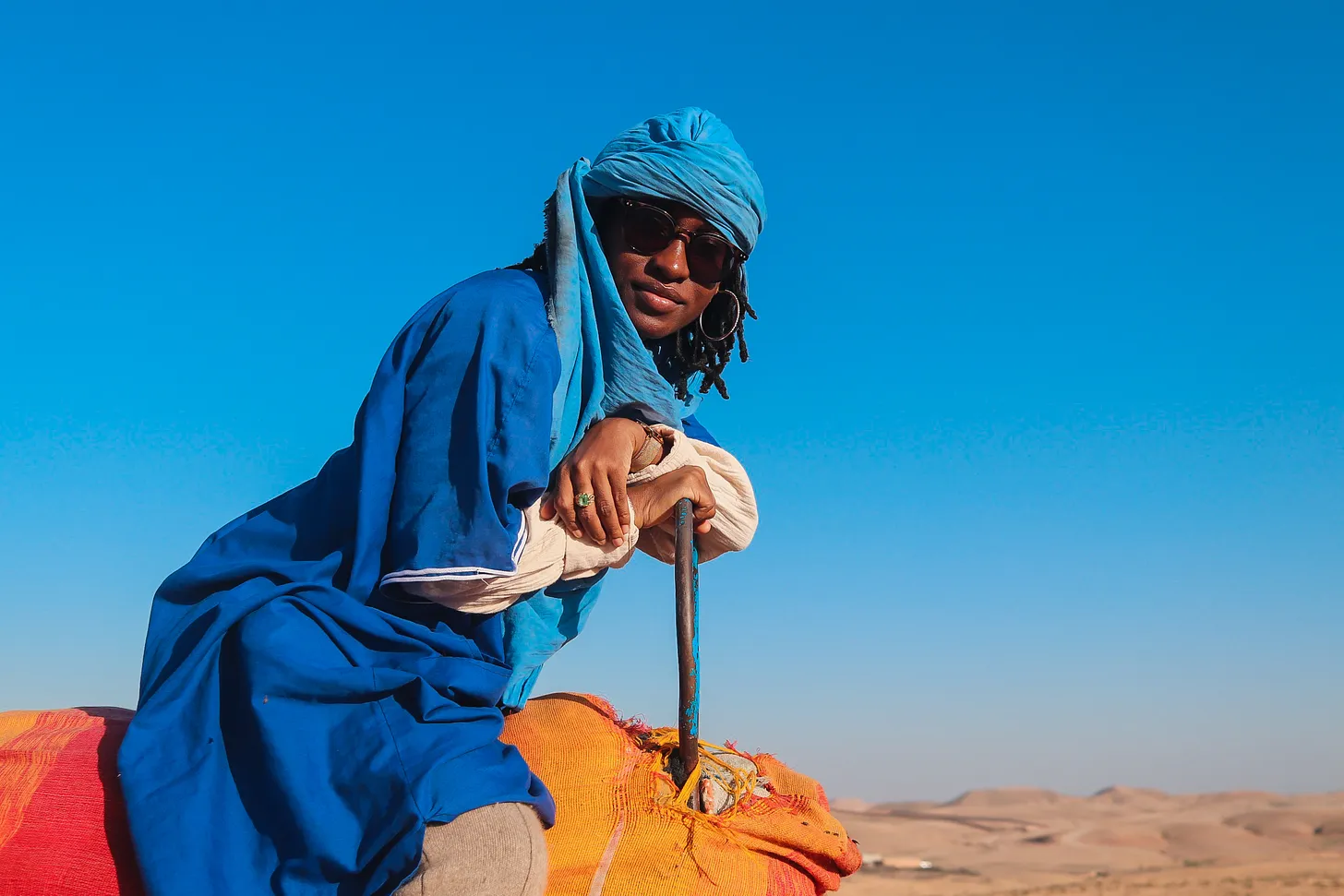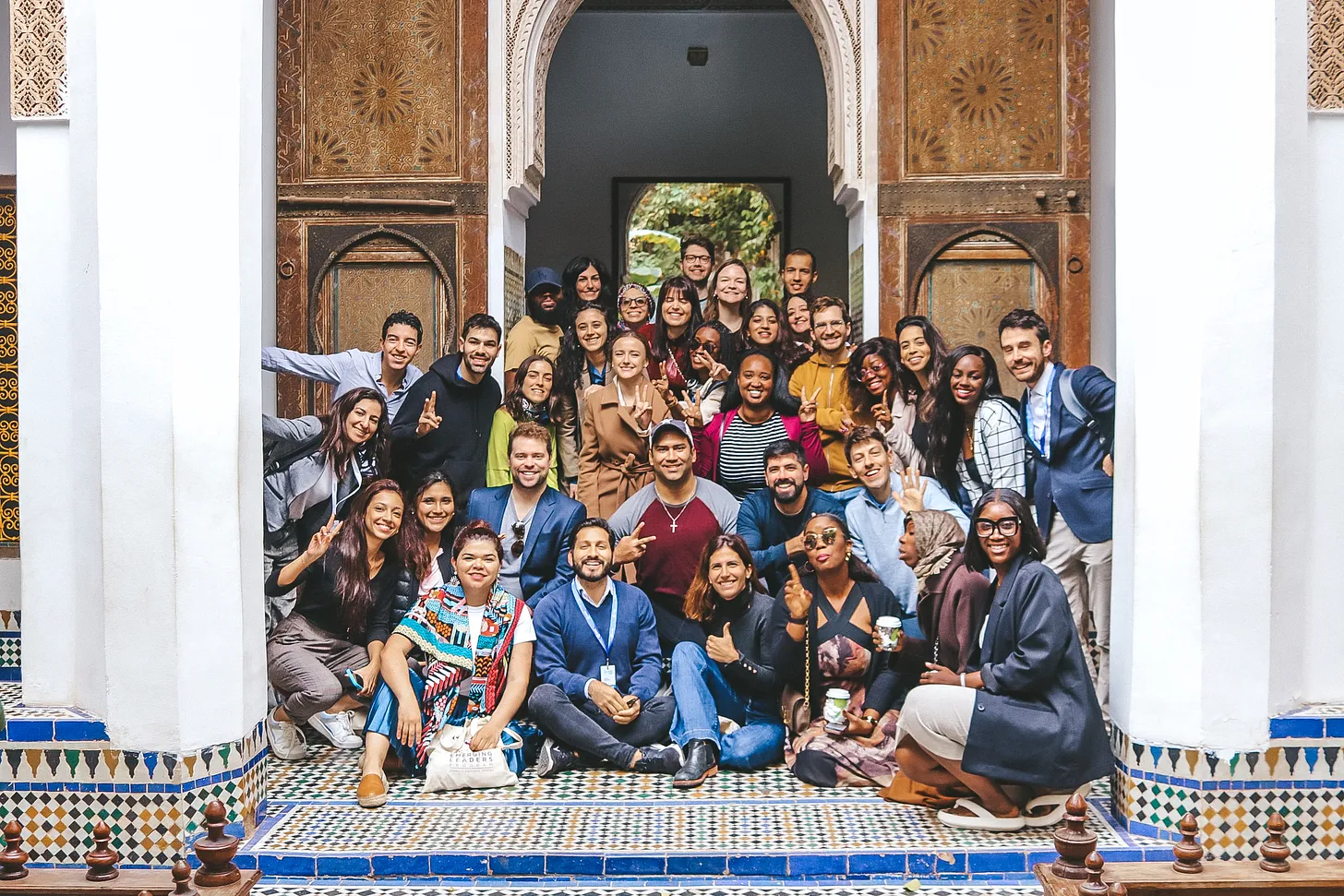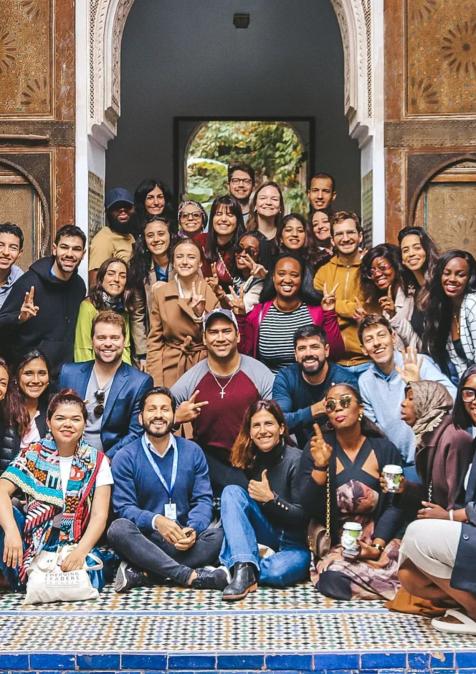Publications /
Opinion

Chadia Mathurin is a 2023 alumna of Atlantic Dialogues Emerging Leaders program. Learn more about her here.
This blog was originally published here.
For the past week, I've been situated in Marrakech, Morocco as part of the Policy Centre for the New South’s Atlantic Dialogues Emerging Leaders Programme and Conference. A think tank, the Policy Centre's model of engaging us as emerging leaders involved creating opportunities — over dinner, through workshops, through labs, and expert-led plenary sessions — for us to think deeply about the issues plaguing the South Atlantic and to design corresponding solutions. It is impossible for me to give a play-by-play of the events of the past few days. However, I will share a few standouts.
1- Perhaps a function of impostor syndrome, I'm still amazed that I was selected out of 1400+ to be a part of this cohort of impressive young people. All sub 35, our cohort includes Members of Congress, Council, attorneys, civil society leaders, professors and researchers at some of the world's most prestigious universities, employees at international institutions such as the World Bank, and heads of think tanks and institutes. This is without question the most impressive group of young people that I've had the pleasure of being in the midst of.

2- The continuous neglect of the Caribbean voice in the big conversations — conversations that are very much going to impact us — is a problem that is not near finding its solution. In a world dominated by, and preoccupied with big powers, big data, and big things our very make-up as small island developing states stands in juxtaposition to the interests which take the stage of primacy in global matters. This is to say that we are not going to be given seats at the table. We must either take them and/or make our own tables.
3- One of my favorite sessions was on Artificial Intelligence and it was so for two reasons. One of these reasons is that at Wakonté we have developed and are near launching a suite of technological products that will require us to be diligent in and think critically about how we manage data on farmers across Africa and the Caribbean and how we use Artificial Intelligence and Machine Learning to facilitate farmers' access to financial aid, inputs and mechanization. Professor Renee Cummings gave us language for a particular phenomenon: "data trauma". This is where certain demographics or groups of people are adversely affected by the very data that should be used to aid their progress.
The second reason why I so loved this session was because of Dr. Cummings' towering presence as a speaker. She is a Trinidadian woman who is deeply entrenched in the space found at the intersection of Artificial Intelligence and Data Science. She speaks to Congress and on almost every major stage concerned with hosting conversations on the intersection of Data Science and Artificial Intelligence. I was able to publicly pick her brain on the situation of the Caribbean at the varying levels of conversation on artificial intelligence. She, in turn, would challenge me as an emerging leader to take up the mantle of leading the artificial intelligence conversation in the region and she graciously offered her help. As to whether this is a challenge that my time will permit me to take up at this current moment, I do not know. However, I have no doubt that because of what we're building in the agritech space we will, in fact, emerge as one of the region's more prominent voices on the subject and when that day comes, I will be happy to take up Dr. Cummings' extended hand.
4- At a plenary session, Perspectives from The Wider Atlantic: Similarities and Variances I was given the floor and took it as an opportunity to share my passion for the Africa-Caribbean partnership. I proposed a more kinetic Africa-Caribbean partnership that sees the elements/issues of African and Caribbean Development as simultaneous equations to be solved; this is a partnership that will see the vastness of the African continent, the economic strength of Africa, the often underestimated economic strength of the Caribbean and African and Caribbean social entrepreneurs as complementary elements that will allow for quicker, more powerful and more affordable solutions for both regions. My ideas were very well received with Rebecca Bill Chavez, CEO, Inter-American Dialogue declaring it to be one of the Conference's Big Ideas.

5- A Lab on Sustainable Policy Design also stands out. Some of our cohort are already policy makers and some of us will be. This lab provided us all with some critical insight into the management of varying interests, the tugs — pushes and pulls — that are all prevalent realities of policy making. At the end of the day the goal is to make as many stakeholders as possible happy, always leaving the well-being of the people, the polis, or polity as the point of primacy. In essence, policy design is about finding that sweet spot. It requires big thinking. It requires out-of-the-box thinking. It requires innovative thinking.
6- I taught 6th Form for a year. I loved it but it wasn't flexible enough to allow me to pursue other passions. Nevertheless, I was sufficiently impacted by my tenure as a teacher to want to create solutions to some of the problems that I would have encountered. This brings me to share with you a visit to the Mohammed VI Polytechnique.
Exceptional. Cutting-edge. World class.
The above are all appropriate adjectives to describe what is happening at this institution. In its deliberate efforts to solve Moroccan problems, it embodies everything that I've advocated schools should do. UM6P, as it is popularly called has solar farms designed by its students, a digital learning lab that has inspired deeply how we will approach video tutelage for an edtech called notes. that we at Wakonté will launch on January 26th, 2024, and a virtual city called 1337 that operates in a manner that will select some of the best ciders. I was deeply inspired and recommend UM6P as a model for educational institutions across the developing world.
7- I met Dr. Len Ishmael, former Director General of the OECS whose work and contributions, I value. I briefly shared with her how, in a sense, my Master's Thesis, served as a response to, and expansion of her policy paper, Under-Invested: The Africa-Caribbean Relationship. She said she'd be happy to read, and we made plans to facilitate that reading. I'm a happy woman.
8- In the final plenary session, I was given the floor and took it as an opportunity to address the hype/trend approach as it relates to treating issues of development in the South Atlantic. To provide some background, every 2, 3, 5, or sometimes 10 years, those in international fora pick a buzz issue to address. Over the past 10 years or so it's been a combination of food security, climate change, and renewable energy. This has resulted in a disproportionate or inequitable focus on issues of development. For social entrepreneurs, this trend trickles down and affects their access to funding. For those of us in the private sector who are seeking to provide solutions to issues of development that do not fit into the hype/trend of the season, it is incredibly difficult to find funding opportunities. I reminded leaders and policymakers in the room that there are 17 sustainable goals, all of which are pertinent to making the global space better for all of its constituents. Based on current trends it is apt to say that we must move to an equitable focus on the sustainable development goals because a more equitable focus will facilitate a more equitable distribution of funding for various solutions.
This experience has been incredibly enriching. I've met in my cohort people with whom I will share life-long relationships. I've been invited to at least one wedding already and one of my colleagues and I are talking about how to disrupt academic publishing. I'm also grateful for all of the valuable connections I would have made with key persons in key places. With that said, I extend my thanks to the Policy Centre for the New South for planning this event and for having me. Marrakech owes me nothing.



